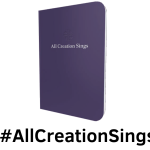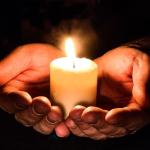 In the fall of 2021, the ELCA Worship Blog began a weekly series entitled, “Prompts for Prayers of Intercession.” Each post included a listing of prayer prompts based on current news and events, as well as a listing of upcoming commemorations and observations and additional prayer and hymn suggestions from Evangelical Lutheran Worship (ELW)/All Creation Sings (ACS) and ELCA resources.
In the fall of 2021, the ELCA Worship Blog began a weekly series entitled, “Prompts for Prayers of Intercession.” Each post included a listing of prayer prompts based on current news and events, as well as a listing of upcoming commemorations and observations and additional prayer and hymn suggestions from Evangelical Lutheran Worship (ELW)/All Creation Sings (ACS) and ELCA resources.
The goal of the project was to give church leaders a resource for crafting, updating, and contextualizing the weekly prayers of intercession for their worshiping communities. The prompts were intended to be a simple way to remain mindful of world events, in order to add relevant information to the “especially…” and the “Here other intercessions may be offered” invitations in the prayers of intercession published in Sundays and Seasons.
As we continue to evaluate and evolve this weekly resource, know that we grateful for your ongoing feedback. We are especially grateful for all who responded to our survey this past November. We have learned that many of you are using the prompts to update and supplement the prayers of intercession in worship. Many of you, however, are using the prompts for a wider variety of purposes, whether praying through the list as part of your personal prayer practice, incorporating requests into prayer times at Bible studies or church meetings, or as a resource for prayer teams in your congregation.
Beginning this Lent, the blog series will be retitled, “For What Shall We Pray?” This new title honors a more expansive understanding of the purpose of this resource. It is not merely a worship planning tool; it is a weekly invitation for individuals, groups, and congregations to remain mindful of the needs of our world, and to lift one another up in prayer.
Photo credit: Sundays and Seasons
Each week we will offer a list of prayer prompts, a listing of upcoming observances – inside the church and beyond – and additional prayer resources from denominational worship materials. “For What Shall We Pray?” will be posted by noon each Tuesday on the ELCA Worship Blog (blogs.elca.org/worship) and linked on the ELCA Worship Facebook page.
We encourage you to find creative ways to use “For What Shall We Pray?” for yourself and for your communities of faith. You might:
- “Pray the news” as part of your personal prayer practice
- Incorporate the week’s requests in your opening or closing prayers at church council or committee meetings, or during Bible and small group studies
- Use the post as a teaching resource or tool for reflection for confirmation class or adult forum
- Choose items from the post as journaling prompts or focus items for meditation
- Commit to an act of service, advocacy, or financial support based on the week’s needs
- Celebrate a new-to-you observance with family or friends
- Double-check the blog before leading worship (if you are a pastor or assisting minister) for last-minute additions to your congregation’s prayers
Whether you have been using this resource or are new to it, we hope that you will find it helpful in your spiritual disciplines and your community’s worship life, as together we faithfully ponder the question, “for what shall we pray?”
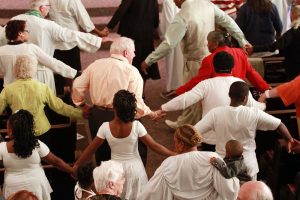
Hepatha Lutheran Church Milwaukee, Wisconsin
Pastor Melissa Bills
Melissa Bills currently serves as the Director of College Ministries and College Pastor at Luther College (Decorah, Iowa). She is a native of the Chicago suburbs, a graduate of St. Olaf College (Northfield, Minnesota) and Princeton Theological Seminary (Princeton, New Jersey), and has served congregations in the Metropolitan Chicago and Northeastern Iowa Synods.

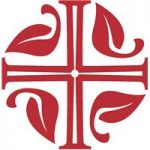
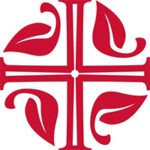 Candidacy and Mobility in the Upstate New York Synod of the ELCA. A past president of the Association of Lutheran Church Musicians (ALCM), Julie also served on the Hymnody Working Group for All Creation Sings.
Candidacy and Mobility in the Upstate New York Synod of the ELCA. A past president of the Association of Lutheran Church Musicians (ALCM), Julie also served on the Hymnody Working Group for All Creation Sings. For the Procession to the Font, there are many possibilities depending on how much liturgical movement there is and what style of music you would like. If you are celebrating baptisms, “Take me to the water,” an African American spiritual (#957) and “God of promise, let these signs of grace”, a new composition from Paul Damico-Carper (#959), are excellent possibilities. If there are Affirmations of Baptism or a Thanksgiving at the Font, “Come to the water of life” (#955) has a beautiful text reminding us that the font is where we should look to find justice, mercy, and love.
For the Procession to the Font, there are many possibilities depending on how much liturgical movement there is and what style of music you would like. If you are celebrating baptisms, “Take me to the water,” an African American spiritual (#957) and “God of promise, let these signs of grace”, a new composition from Paul Damico-Carper (#959), are excellent possibilities. If there are Affirmations of Baptism or a Thanksgiving at the Font, “Come to the water of life” (#955) has a beautiful text reminding us that the font is where we should look to find justice, mercy, and love.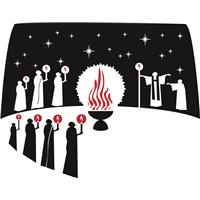
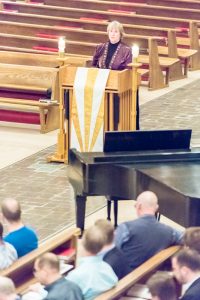 Susan Palo Cherwien, Lutheran hymnwriter and poet,
Susan Palo Cherwien, Lutheran hymnwriter and poet, 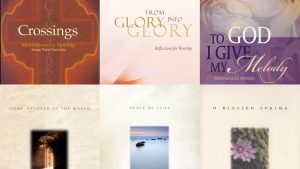 Several more of her hymns are published in three volumes available from Augsburg Fortress:
Several more of her hymns are published in three volumes available from Augsburg Fortress: 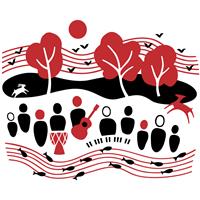 All Creation Sings,
All Creation Sings,